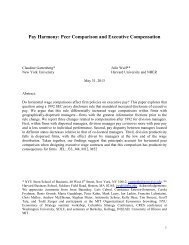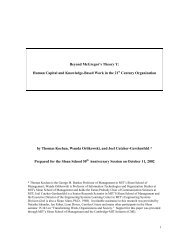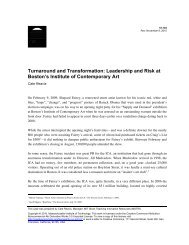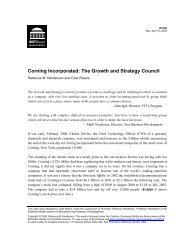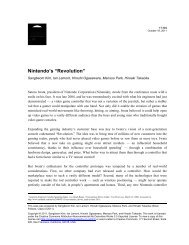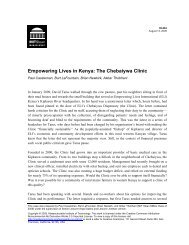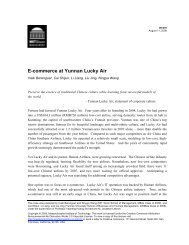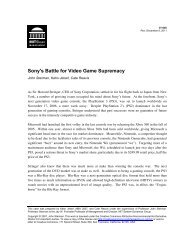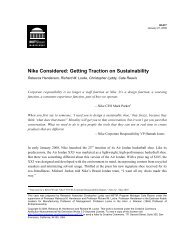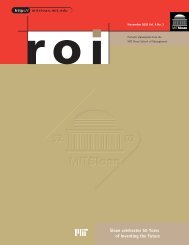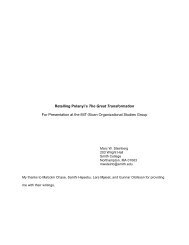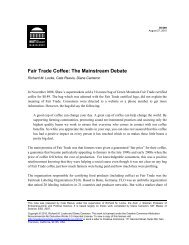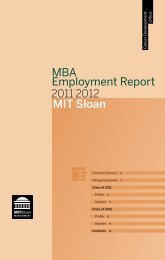Understanding earnings quality - MIT Sloan School of Management
Understanding earnings quality - MIT Sloan School of Management
Understanding earnings quality - MIT Sloan School of Management
Create successful ePaper yourself
Turn your PDF publications into a flip-book with our unique Google optimized e-Paper software.
Equity market incentives receive little support as a determinant <strong>of</strong> accounting choices when<br />
measured relative to incentives provided by external factors. However, the tests <strong>of</strong> equity market<br />
incentives are likely to be <strong>of</strong> low power relative to tests <strong>of</strong> incentives provided by regulatory capital<br />
requirements to manage specific accounts such as the loan loss provision.<br />
The <strong>earnings</strong> management activities associated with these external factors may potentially<br />
mislead other financial statement users. We did not catalogue any studies on how/whether firms<br />
communicate to equity markets during periods <strong>of</strong> regulatory scrutiny to <strong>of</strong>fset the negative message<br />
they falsely send to regulators/politicians, or the extent to which firms may forgo accessing capital<br />
during these periods. We also did not catalogue any studies that assess equity market reactions to<br />
<strong>earnings</strong> during these periods when investors might rationally infer the <strong>earnings</strong> management. 70<br />
Several papers provide evidence that firms use multiple tools in response to a single<br />
incentive. These results emphasize a point we have made previously: accruals management, ceteris<br />
paribus, may impair <strong>earnings</strong> <strong>quality</strong>, but it represents only one choice within the firm’s portfolio <strong>of</strong><br />
accounting and real choices. Hunt, Moyer, and Shevlin (2000) examine both multiple tools and<br />
multiple incentives.<br />
Finally, there is (surprisingly) limited research on macroeconomic conditions as a<br />
determinant <strong>of</strong> EQ. Although we had initially defined a category to collect these papers, our journal<br />
search found only one paper that focuses primarily on macroeconomic factors as a determinant <strong>of</strong><br />
<strong>earnings</strong> <strong>quality</strong> (Liu and Ryan, 2006) and one paper that gives them significant albeit secondary<br />
70 Two studies, however, provide related discussions/evidence. Ronen and Aharoni (1989) develop a model that shows<br />
that higher tax rates are associated with choices <strong>of</strong> income-increasing accounting methods, excepting accounting<br />
methods subject to book tax conformity. A key assumption <strong>of</strong> the model is that equity market participants will see<br />
through the <strong>earnings</strong> management and value the firm’s equity correctly. Beatty and Harris (1999) compare security gains<br />
and losses in public banks to those in private banks, both <strong>of</strong> which are subject to capital requirements, to determine how<br />
<strong>earnings</strong> management differs under the assumption that public banks have greater incentives to engage in <strong>earnings</strong><br />
management than private banks due to equity market incentives. However, this paper does not test how and when banks<br />
trade-<strong>of</strong>f the equity market incentives against other <strong>earnings</strong> management incentives that firms face.<br />
119



